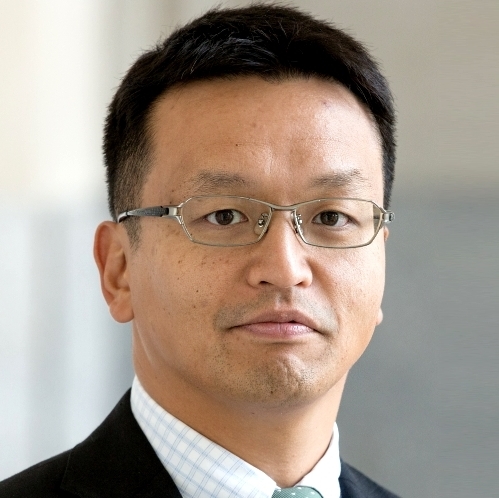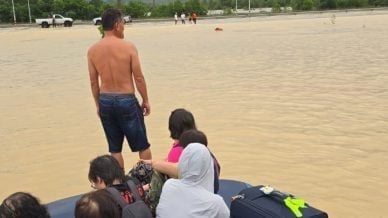
By Atsuhito Isozaki
On April 21, CNN reported that Kim Jong Un was "in grave danger after undergoing a previous surgery," citing high-ranking US government officials. Unlike a big scoop claiming the death of North Korea's supreme leader, the report is by its nature very difficult to verify even with the passage of time. This differs from rumors of a death that can be clearly refuted as false by showing scenes of the individual in good health, because during the absence of reports on the person's condition, there is no clarification on whether they have fallen ill, and if so, the severity of their condition.
Kim Jong Il had been the subject of countless death rumors, but there were virtually no signs from intelligence agencies or the media in advance of his actual passing in December 2011. While no one, much less myself as a mere researcher, knows what is going on, I would like to offer a viewpoint on how we should verify this kind of information when it appears again in the future.
A writer who has regularly monitored Rodong Sinmun (Workers' Newspaper) for more than two decades fielded an onslaught of questions about whether there had been a change in the tone of the paper's reporting. The answer was "No." But even when Kim Jong Il passed away, no signs had been gleaned from North Korean media until the announcement of a "special broadcast" that mirrored the format announcing his predecessor Kim Il Sung's death. Thus the premise of any analysis must be that even if an issue has occurred, North Korea's system would allow it to thoroughly conceal such information.
When there was a pause in reports on the activities of Kim Jong Il in August 2008, various media outlets recited rumors of his illness. Not only was the military parade to mark the 60th anniversary of the country's founding on September 9 downsized, Kim was also not in attendance, lending greater credence to the possibility that something extraordinary had taken place. The following day, Kim Yong Nam, President of the Presidium of the Supreme People's Assembly of North Korea and Kim Jong Il's number two according to protocol gave a Kyodo News interview in which he dismissed rumors of the leader's sickness as a sinister plot. This major national event was covered up from top to bottom, and it was not until October that a change in tone could be clearly recognized.
This time, telegrams in the name of Kim Jong Un have been sent to the presidents of Zimbabwe, Cuba and Syria on April 18, 20 and 22 respectively. While there is no way to know whether Kim is laid up with illness, there is zero chance that he is dead, and it is fair to say that he is in a state that allows him to issue the minimum necessary orders. The fact that North Korea carried out multiple short-range cruise missile launches on April 14 also supports this claim.
The focus of speculation is on the fact that Kim Jong Un did not attend events marking the birthday of the late Kim Il Sung. Without fail, Kim Jong Un has visited the Kumsusan Palace of the Sun where the bodies of his grandfather and father are laid to rest to offer prayers on April 15 each year. This time, while a basket of flowers bearing Kim Jong Un's name were presented inside the palace, only a group of top-ranking officials led by Choe Ryong Hae were in attendance. Some theories have suggested this was a measure to prevent coronavirus infections, but not only has Kim Jong Un visited the palace on his own in the past, on April 11th he presided over the politburo meeting of the Central Committee of the Workers' Party of Korea, making this explanation less likely.
Given these factors, only two possibilities remain. One is that some issue regarding Kim Jong Un's health has occurred, and the other is that the way he pays his respects to his predecessors has changed. In his "New Year's Address" on January 1 last year, for the first time Kim Jong Un made no mention at all of Kim Il Sung or Kim Jong Il. Since the year before last, there has been virtually no mention of the Songun (Military First) strategy that symbolized the reign of Kim Jong Il, nor reference to Kim Jong Il's dying wishes since 2017. This is a clear sign of Kim Jong Un's independence from his parents. Now in his 9th year at the helm of the regime, Kim Jong Un must have a strong desire to stand entirely on his own. He may therefore have decided that it is no longer necessary to visit the palace every year. Having said that, since he visited the palace in February this year together with Politburo members to mark the birthday of Kim Jong Il, the latter possibility cannot be entertained with much confidence.
While it is ultimately possible that something unusual has occurred in relation to Kim Jong Un's health, there is no way to tell whether that means he is "in grave danger." By the same token, no materials that contradict CNN's reporting have been produced. That said, even if some significant development has occurred, the fact that the tone of the North Korean media apparatus remains calm would suggest that major national events do not always lead to regime instability.
(Atsuhito Isozaki is Associate Professor at Keio University, Japan.)
ADVERTISEMENT
ADVERTISEMENT


































